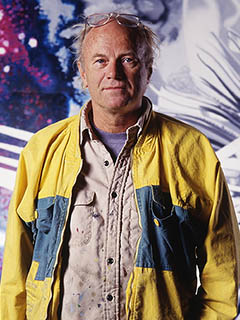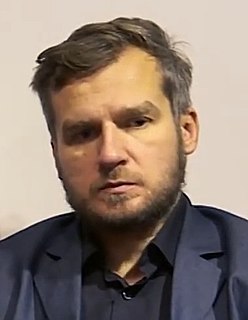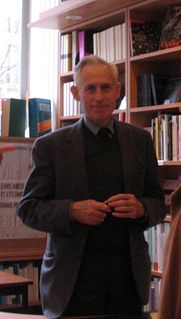A Quote by Seth Shostak
It's worth noting that invoking God as the entity who set our universe in motion isn't contradicted by the data. Of course, scientists would say the supreme being hypothesis is faith, and outside the realm of science - that it's not amenable to experiment. But we currently have the same problem with the notion of parallel universes.
Related Quotes
Science ignores the spiritual realm because it is not amenable to scientific analysis. As importantly, the predictive success of Newtonian theory, emphasizing the primacy of a physical Universe, made the existence of spirit and God an extraneous hypothesis that offered no explanatory principles needed by science.
Scientists say, 'There is no such thing as time; gravity is a dust from another universe, and outside our own universe are many, many universes in all directions.' They speculate that attached to these universes are probably 6,000 planets identical to Earth. So are there things living out there? Animals, people, anything?
[Coining phrase "null hypothesis"] In relation to any experiment we may speak of this hypothesis as the "null hypothesis," and it should be noted that the null hypothesis is never proved or established, but is possibly disproved, in the course of experimentation. Every experiment may be said to exist only in order to give the facts a chance of disproving the null hypothesis.
It was life under the Soviet system - we were struggling with every big problem. Publicly, my parents had to queue up to buy food, but were able to live secret lives in their private rooms. With the TV set in the living room, we were able to see Western pop culture -a different reality from what we were living. For me, it was like two different universes existed at the same time, and we got used to being in these parallel universes.
Some physicists solve that problem of the necessity of finely tuned physical constants ... by invoking the anthropic principle, saying, well, here we are, we exist, we have to be in the kind of universe capable of giving rise to us. That in itself is, I think, unsatisfying, and as John Lennox rightly says, some physicists solve that by the multiverse idea-the idea that our universe is just one of many universes.
What is the fundamental hypothesis of science, the fundamental philosophy? We stated it in the first chapter: the sole test of the validity of any idea is experiment. ... If we are told that the same experiment will always produce the same result, that is all very well, but if when we try it, it does not, then it does not. We just have to take what we see, and then formulate all the rest of our ideas in terms of our actual experience.
With billions of years, who knows what science might make possible? Why, it might even make it possible for an intelligence, or data patterns representing it, to survive a big crunch and exist again in the next cycle of creation. Such an entity might even have science sufficient to allow it to influence the parameters for the next cycle, creating a designer universe into which that entity itself will be reborn already armed with billions of years worth of knowledge and wisdom.
I often think that we are like the carp swimming contentedly in that pond. We live out our lives in our own "pond," confident that our universe consists of only the familiar and the visible. We smugly refuse to admit that parallel universes or dimensions can exist next to ours, just beyond our grasp. If our scientists invent concepts like forces, it is only because they cannot visualize the invisible vibrations that fill the empty space around us. Some scientists sneer at the mention of higher dimensions because they cannot be conveniently measured in the laboratory.
There are two - parallel - universes of science. One is the actual day-to-day work of scientists, patiently researching into all parts of the world and sometimes making amazing discoveries. The other is the role science plays in the public imagination - the powerful effect it has in shaping how millions of ordinary people see the world.
As long as you identify with the universe - which is perfect and can correct material conditions to bring them back into alignment with that Divine perfection - as long as that is where your mind is aligned, it's as though there were two parallel universes. You decide with every thought you think which one you're going to inhabit. Two parallel universes of experience, as it were.
No man succeeds without faith. Whether you call it religious faith or label it something else. I don't feel anything worthwhile is accomplished without it. When you believe there is a Supreme Being guiding the destiny of this universe and that within each of us there is a little part of that Being, then you will have faith in yourself, in your country, in that Supreme Being, and in humanity itself.




































